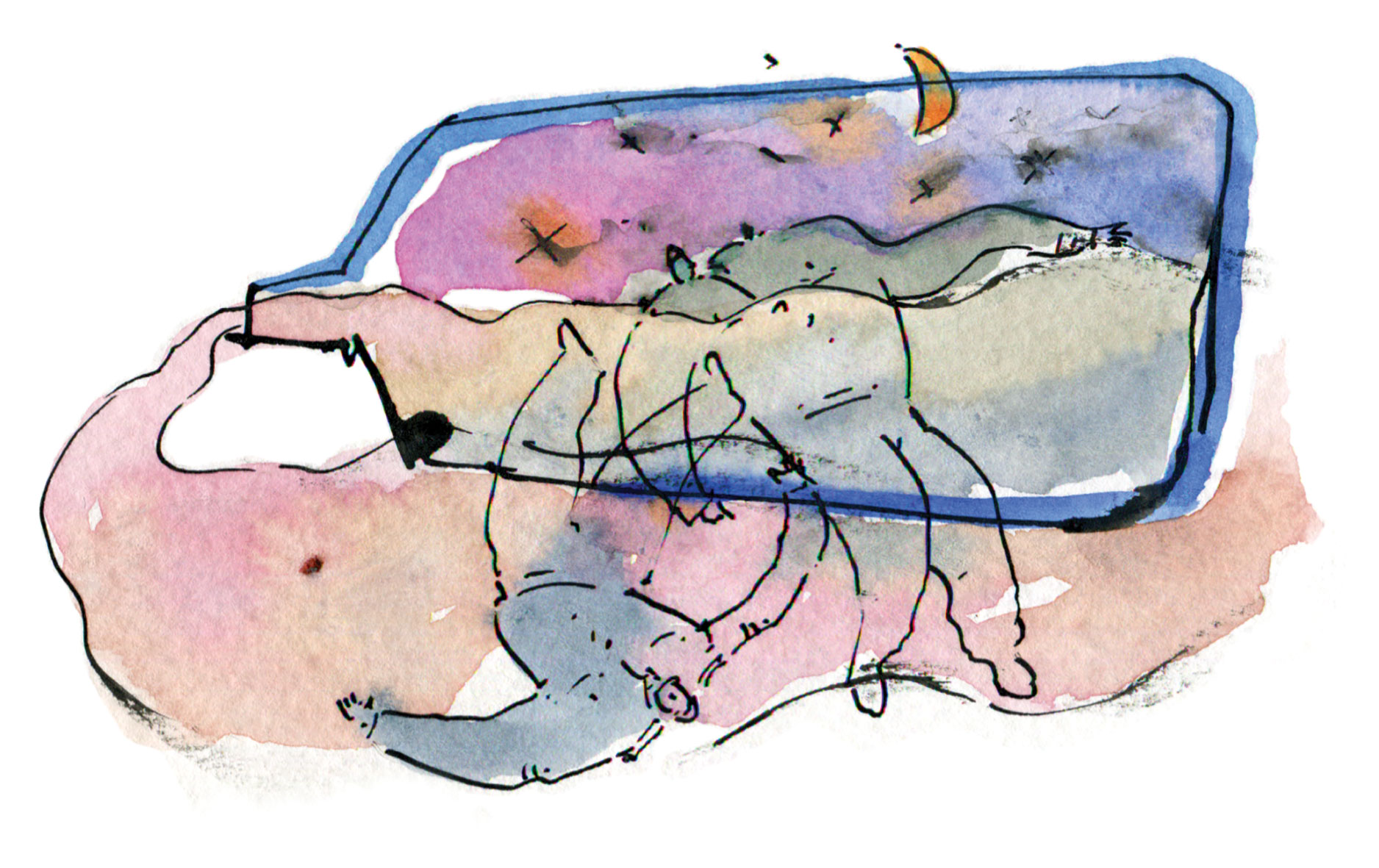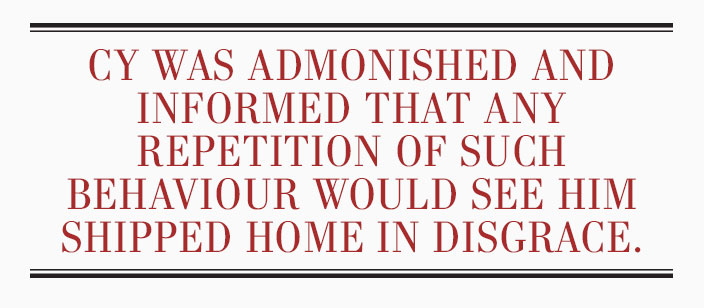
– Illustration by Malcolm Jones –
Two of my uncles ended up in the Korean War, one in the Canadian Army, the other in the American Army (how that happened is a story in itself). Cy was a sergeant in the Princess Patricia’s Canadian Light Infantry, assigned to the Canadian headquarters where, among other things, he was the padre’s assistant. Don was a sergeant in one of those numbered American outfits, leading patrols over hellish bits of Korean real estate.
One day, as Cy was handling his paperwork, a concerned private entered his office to say there was a suspicious character at the front gate asking for him. Cy strode down to the entry and found two sentries flanking a bedraggled American sergeant. The man was fresh from some place known as Old Baldy. He was unshaven with his tattered uniform caked in mud. He was carrying an arsenal, including a submachine gun, a long fighting knife and a pocketful of grenades.
Cy stared for a long moment before recognizing his brother. The reunion was joyous. Don was dragged to a barracks to shave, shower and don clean clothes. The sentries gingerly took his weaponry. His ragged uniform was sent off to be laundered and mended.
The next problem was finding potables to celebrate the occasion. The padre was known to keep a bottle or two on hand and a quick raid on his stash procured a couple of bottles of something resembling whisky. The ensuing party was long and the whisky flowed freely.
Retribution arrived along with next-day hangovers. The padre was not amused. Cy’s superiors were not amused.
They allowed that there were mitigating circumstances (finding your brother in the same war zone in a different army was no everyday occurrence!) and decisions were made. Don was handed his clean duds and weapons and told to begone whence he came. Cy was admonished and informed that any repetition of such behaviour would see him shipped home in disgrace.
Both brothers survived the war, but for the rest of his life Don would say that if he had known that stealing booze from the chaplain and getting plastered might have been punished by a trip home, he would have done it more often.
And talk about a forgotten war. Many years later, my mother and I were visiting Cy in his rural home and I was looking over the rifle he used for deer hunting. My mother saw the weapon and was appalled: “Cy! What do you know about guns?”
He looked pained. “Well, I was in the army.”

A fellow I knew many years ago did a Second World War tour with the Royal Canadian Air Force as a navigator in a Mosquito fighter-bomber. He flew dozens of intruder missions over occupied Europe, but one of his closest calls came in the skies over England.
In 1944, he and his pilot were assigned briefly to defending against V-1 flying bombs. Hundreds of these buzz bombs, the predecessors of today’s cruise missiles, were being launched against British 0bjectives, hitting random targets and raising public distress. Luckily, they flew low enough and slow enough that modern fighter planes could catch them. Dave and his pilot set off to do their bit.
Their first encounter went badly, as they dived too fast and overshot the target.
The next time they sighted one, they crept up behind it to point-blank range. When the pilot fired the nose-mounted cannons, the bomb exploded in a huge fireball, engulfing the Mosquito. As they emerged from the flames, the aircraft seemed fine. They congratulated themselves on a job well done and headed for home.
After they touched down, however, they noticed people staring and pointing at them. As they left the cockpit, they discovered why everyone was so interested. There was not a lick of paint left on the plane. The fireball had charred it from nose to tail. After their debrief, other aircrew were advised to keep their distance from V-1s in future. It was considered ill-advised to fly a Mosquito through fireballs. After all, the plane was built of plywood.
Peacekeeping or peacemaking missions can show you some odd things. In the 1990s, as the UN and then NATO tried to stabilize the former Yugoslavia, Bosnia-Herzegovina was a sort of Wild West place, with little law and less order. It had become a sort of roach motel for automobiles in that they might check in, but often didn’t check out, at least not with the same plates and vehicle identification number.
Driving into Bosnia from Zagreb one day, we passed a kind of pop-up used car lot. It had a tent for a sales office, a flat bit of pasture for a showroom and perhaps a dozen, very tired cars on display. I did a double take as we passed, though, because one of the cars carried New Brunswick licence plates.
Advertisement


















